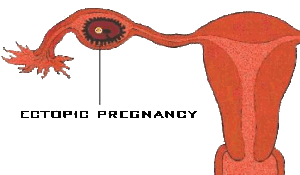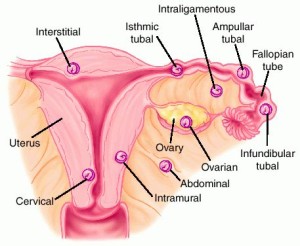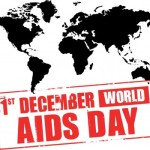Vanessa Carlton Reveals She Had an Ectopic Pregnancy

American singer-songwriter and musician Vanessa Carlton announced that she must cancel the first four concerts of her upcoming concert tour. The reason, she explained, is that she recently was diagnosed with an ectopic pregnancy, and had to undergo surgery.
On Facebook, as well as on her website, Carlton explained:
“I announced that I was pregnant during the first week of tour. The day after our NYC show on Oct 15th, I was diagnosed with an ectopic pregnancy, or in my case it was a fallopian pregnancy (the embryo settled in my tube, which is the width of a straw.) This is not considered a viable pregnancy because the fetus cannot develop and it is a high risk situation for the mother because of the potential for tubal rupture and internal bleeding.
We caught it relatively early so I was given a shot of Methotrexate, a mild chemotherapy instead of having surgery. This would hopefully shrink the pregnancy and save my tube. My doctors didn’t want me leaving the city so that I was very close to hospital at all times.
This past Monday, Oct 28th, 11 days after the chemo shot and despite our best efforts, my tube started to rupture and I was experiencing internal bleeding…. My doctor performed a successful surgery and removed my entire right fallopian tube.”
Carlton wanted to reassure her fans that her left tube and both ovaries are perfectly fine. She also said that there was speculation that an appendectomy she had when she was 12 years old may have caused scarring which may have lead to the ectopic pregnancy.
Calton’s debut single, A Thousand Miles, reached the top five on the Billboard Hot 100 in 2002:
What is an ectopic pregnancy?
An ectopic pregnancy is a pregnancy that occurs outside the womb (uterus). It is life-threatening to the mother.
Causes and risk factors
 In most pregnancies, the fertilized egg travels through the fallopian tube to the womb (uterus). Anything that blocks or slows the movement of this egg through these tubes can lead to ectopic pregnancy:
In most pregnancies, the fertilized egg travels through the fallopian tube to the womb (uterus). Anything that blocks or slows the movement of this egg through these tubes can lead to ectopic pregnancy:
- Birth defect in the fallopian tubes
- Scarring after a ruptured appendix
- Endometriosis
- Having an ectopic pregnancy before
- Scarring from past infections or surgery of the female organs
The following also increase your risk of an ectopic pregnancy:
- Age over 35
- Getting pregnant while having an intrauterine device (IUD)
- Had surgery to untie tubes (tubal sterilization) to become pregnant
- Having had many sexual partners
- Some infertility treatments
- Having your tubes tied (tubal ligation) - more likely 2 or more years after the procedure
Sometimes the cause is unknown. Hormones may play a role.
 The most common site for an ectopic pregnancy is within one of the two fallopian tubes. In rare cases, ectopic pregnancies can occur in the ovary, abdomen, or cervix.
The most common site for an ectopic pregnancy is within one of the two fallopian tubes. In rare cases, ectopic pregnancies can occur in the ovary, abdomen, or cervix.
An ectopic pregnancy can occur even if you use birth control.
Symptoms
- Abnormal vaginal bleeding
- Low back pain
- Mild cramping on one side of the pelvis
- No periods
- Pain in the lower belly or pelvic area
If the area around the abnormal pregnancy ruptures and bleeds, symptoms may get worse. They may include:
- Fainting or feel faint
- Intense pressure in the rectum
- Low blood pressure
- Pain in the shoulder area
- Severe, sharp, and sudden pain in the lower abdomen
Exams and Tests
The health care provider will do a pelvic exam. This may show tenderness in the pelvic area.
A pregnancy test and vaginal ultrasound will be done.
HCG is a hormone normally produced during pregnancy. Checking the blood level of this hormone can diagnose pregnancy. If the blood level of HCG is not rising fast enough, your doctor may suspect an ectopic pregnancy.
Treatment
Ectopic pregnancy is life-threatening. The pregnancy cannot continue to birth (term). The developing cells must be removed to save the mother’s life.
You will need emergency medical help if the area of the ectopic pregnancy breaks open (ruptures). Rupture can lead to bleeding and shock, which is an emergency condition.
If there is a rupture, surgery is done to stop blood loss and remove the pregnancy. In some cases, the doctor may have to remove the fallopian tube.
If the ectopic pregnancy has not ruptured, treatment may include:
- Surgery
- Medicine that ends the pregnancy, along with close monitoring by your doctor
Outlook (Prognosis)
One out of three women who have had one ectopic pregnancy are later able to have a baby. Another ectopic pregnancy is more likely to occur. Some women do not become pregnant again.
The likelihood of a successful pregnancy after an ectopic pregnancy depends on:
- The woman’s age
- Whether she has already had children
- Why the first ectopic pregnancy occurred
For more information, Click Here, to go to the Resounding Health Casebook on the topic.



























0 comments